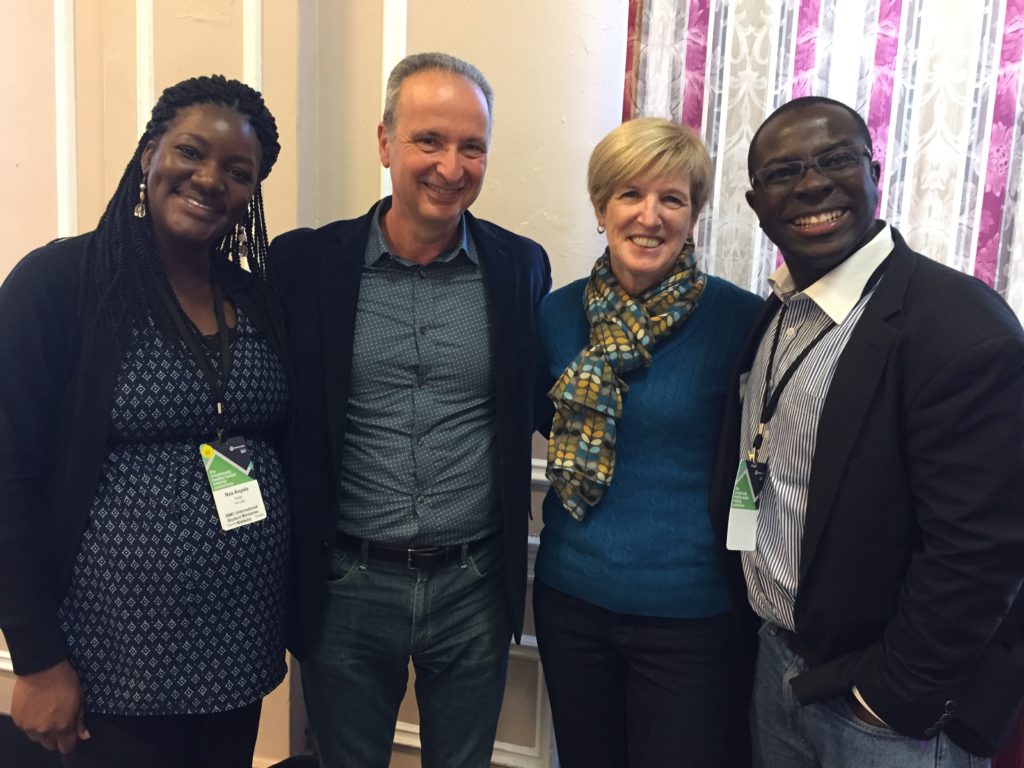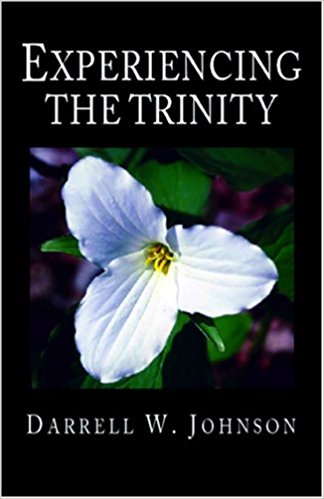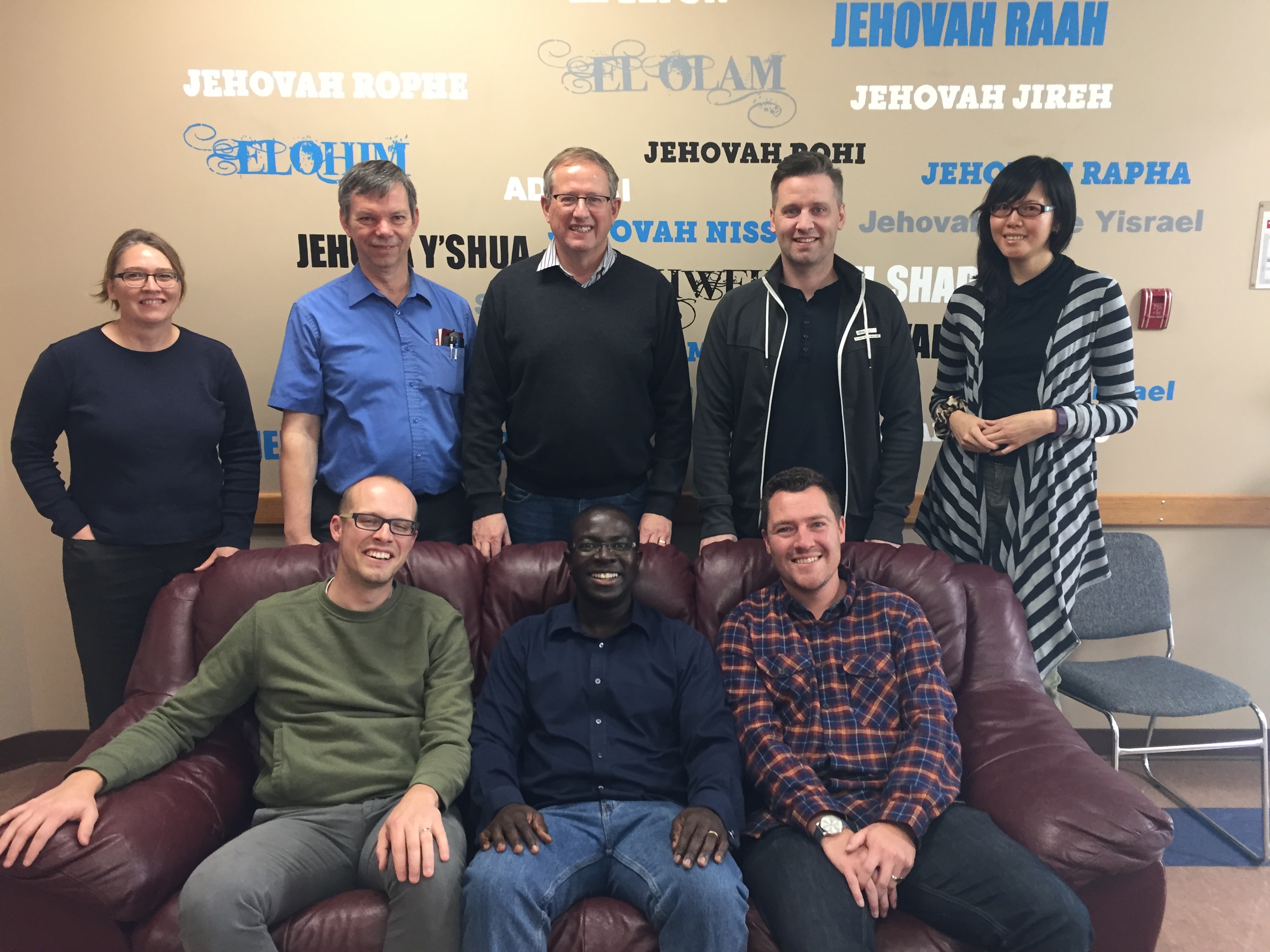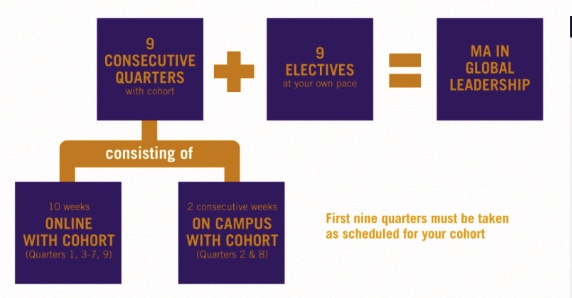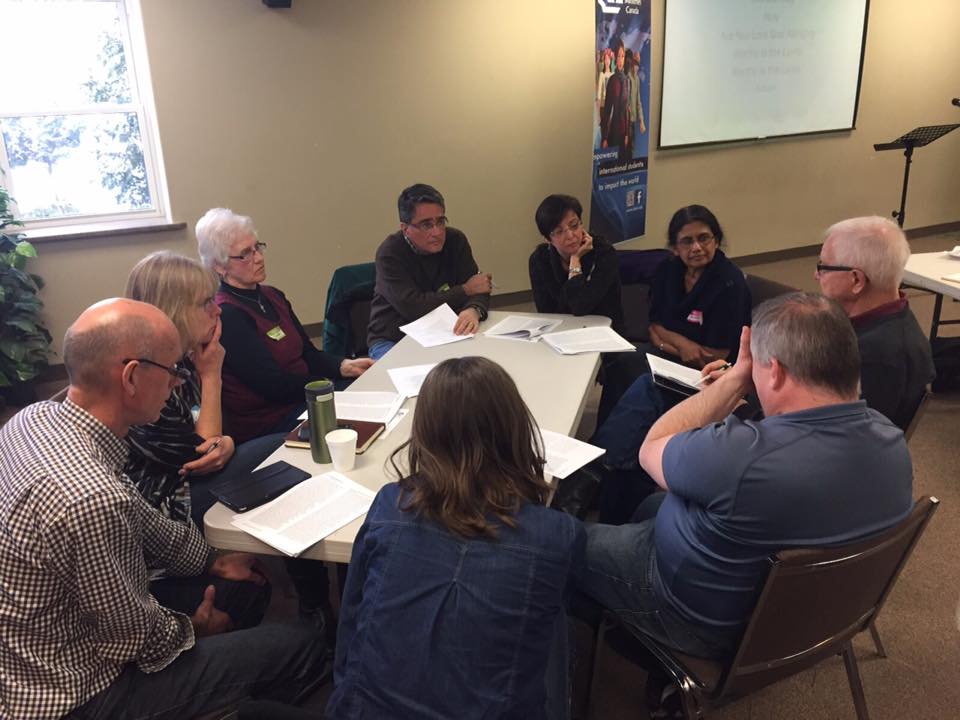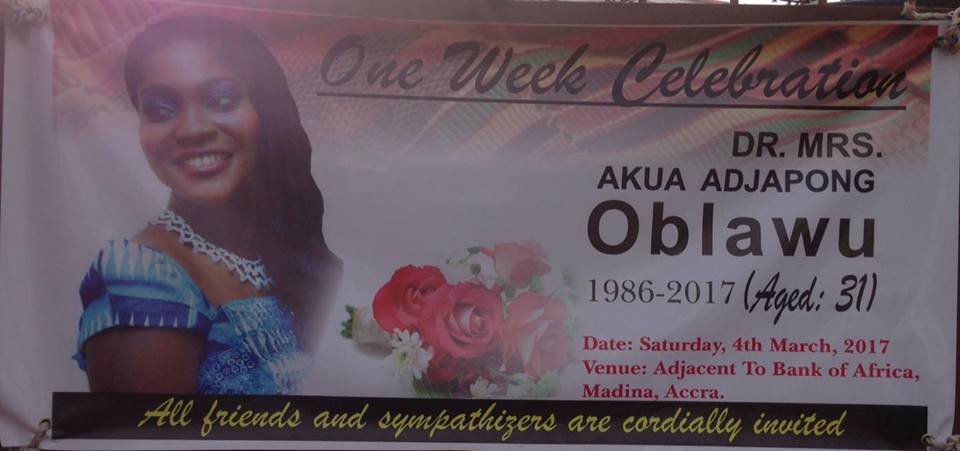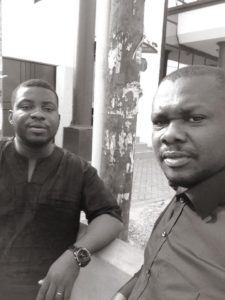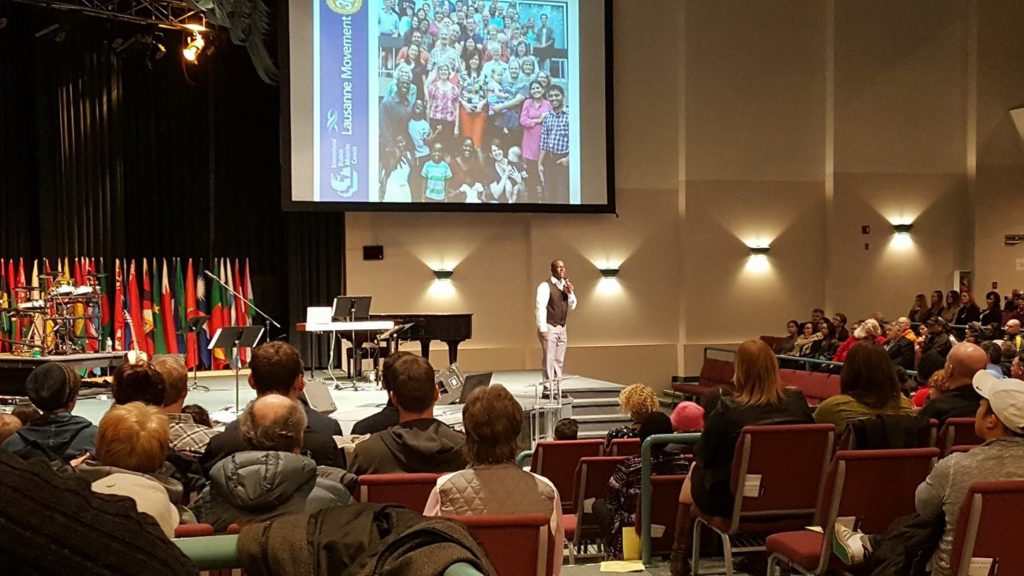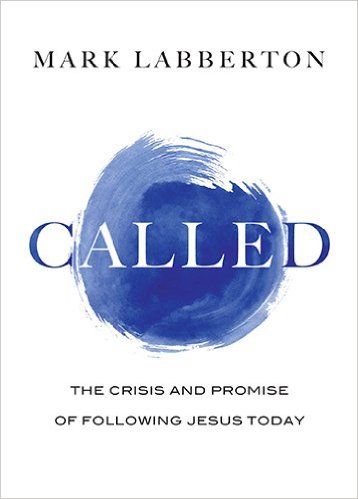What’s in a name?
Sometimes one can’t help but wonder whether names of people in history were given to them after they lived the way they did (to capture the essence of their lives) or really before. Naming is important; names are prophetic.
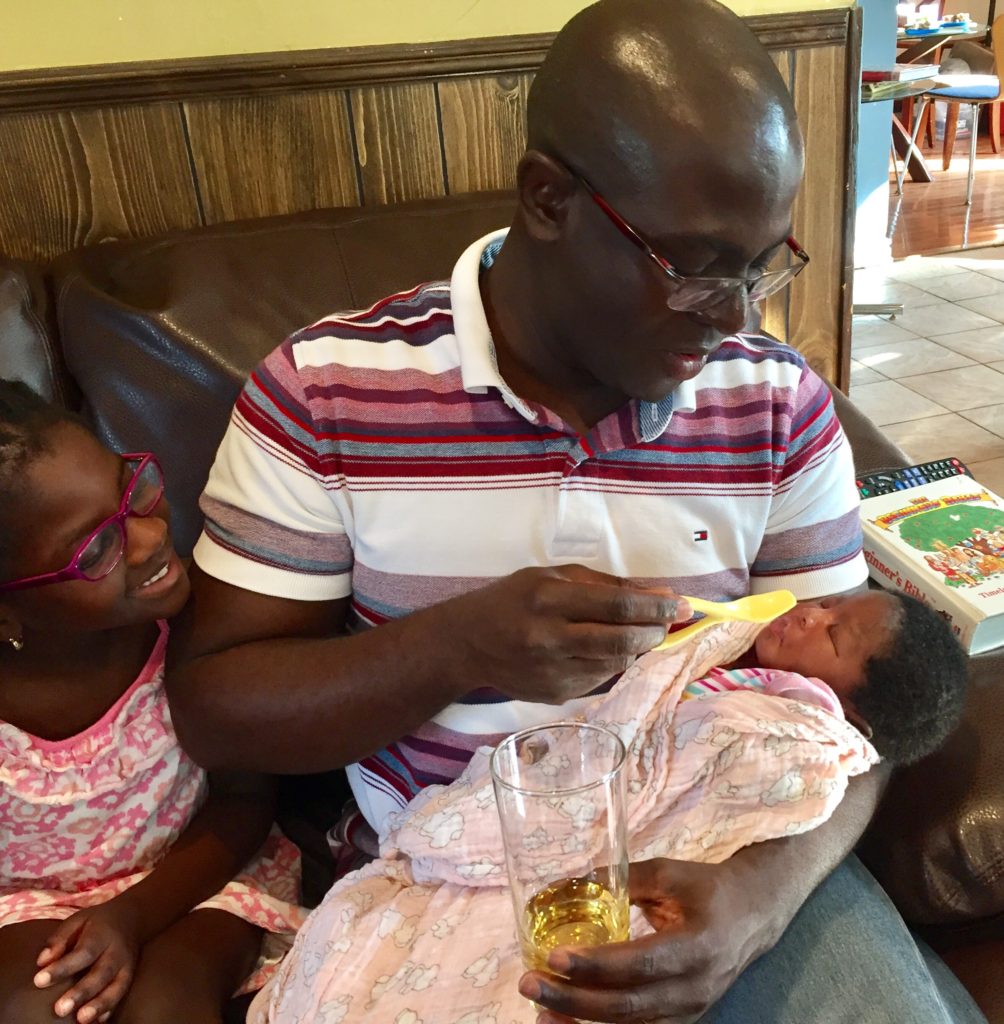
Performing an Akan tradition where you symbolically ask the child to learn to distinguish between ‘water’ and ‘juice,’ ‘good and evil,’ ‘black and white,’ right and wrong.’
Nana Ahomka
Nana Ahomka Asamoabea Perbi
And a voice came from heaven: “You are my Son, whom I love; with you I am well pleased.” (Mark 1:11)
And Jesus grew in wisdom and stature, and in favour with God and man. (Luke 2:52)
 I woke up early morning on Monday, 6th February with ‘Adenyinaamu’ on his heart; yes, that this child we were carrying will be holistic and have “God in my everything,” “God over everything.”
I woke up early morning on Monday, 6th February with ‘Adenyinaamu’ on his heart; yes, that this child we were carrying will be holistic and have “God in my everything,” “God over everything.”
Considering the challenge of name pronunciation in the global context we kept the idea of holistic, wholesome, bringing God pleasure in every area of her life and gave her the simpler version Ahomka, Nana Ahomka–God’s pleasure (delight). This emphasizes both our prayer that she will live a wholesome, holistic life, all aspects pleasing to the LORD, as well as that she will bring delight to us and everyone she ever encounters.
The middle name, Asamoabea, is that of my beloved paternal grandmother who was quite the prayer warrior and story-teller! And boy could she dance with delight to everyone’s delight!
Our prayer:
Let love and faithfulness never leave you; bind them around your neck, write them on the tablet of your heart. So you will find favour and good repute In the sight of God and man. Trust in the LORD with all your heart and lean not on your own understanding; in all your ways submit to him, and he will make your paths straight. (Proverbs 3:3-6)
From ‘Fantastic Four’ to ‘Fabulous Five’

Our children with their prophetic names (from left to right)…
- Nana Agyina (God’s Purpose) | Boy, 9 years
- Nana Adwenepa (God’s Paradigms) | Boy, 5 years
- Nana Ahotew (God’s Purity) | Girl, 2 years
- Nana Ashede (God’s Principles) | Girl, 7 years
- Nana Ahomka (God’s Pleasure) | Girl, 0 years (or 1 year, the Chinese way 🙂
Emotionally Constipated
In medical school this wasn’t one of the diagnoses I was taught I could make but on the other side of the doctor’s desk, this may be an even more dire diagnosis than a clogged gut.
MAINLY MEN; BUT NOT ONLY
Last Sunday, in a suburban church in Montreal, this was the summary of the middle-aged chap who shared his life-long struggle of dealing with his past: “I don’t do emotions.” Me too! Well, no more.
In many world cultures, that is the manly thing to do; it is macho. Some women try it too 🙂 In fact, in my own language, there is a saying that, “Obarima nnsu;” to wit, real men don’t cry. Even as a little boy growing up in Scripture Union circles in Accra, I always knew there was something wrong with that statement because I considered no one more manly that Jesus Christ yet he wept. Ever since then, I haven’t had a problem with weeping (you probably have seen me weep!) but errm… not done so well with a whole range of other emotions.
FACE, FIGHT OR FLIGHT?
I still remember my rather unemotional response to one of my staff’s emotional appeal when he said, “I feel…” My immediate response was, “Good thing that it’s only a feeling; but what do you think?!…” I don’t need to tell you that conversation didn’t go very well after that.
The Lord has been particularly convicting me of my emotional immaturity since the beginning of this year. Prior to that, I was the kind of leader Ruth Haley Barton would describe in Parker Palmer’s words as having risen to leadership based on “extroversion, which means they have a tendency to ignore what is going on inside themselves. These leaders rise to power by operating very competently and effectively in the external world, sometimes at the cost of internal awareness… but the link between leadership and spirituality calls us to reexamine that denial of the inner life.” (Barton 2012, 44, emphasis mine).
In fact, I might never have picked up a book like Peter Scazzero’s The Emotionally Healthy Leader because hitherto the word ‘emotional(ly)’ anywhere put me off. But for Dallas Willard and Scazzero, I had never thought of my emotional life as specifically needing to be discipled! I certainly did not have the theological, mental or practical framework for that!
Scazzero astounded me and totally destroyed my perception of what spiritual formation consists of when he emphatically stated, “it is not possible to be spiritually mature while remaining emotionally immature!” (Scazzero 2015, 17). Gordon Smith drove the dagger deeper into my heart when he confirmed that “what is happening to us emotionally is not secondary to our spiritual experience, but may actually be—pun intended—the heart of the matter” (Smith 2014, 27).
And whole squadrons of the ancients agree, that “few things are so crucial to our growth in faith, hope and love as our capacity to be alert to the emotional contours of our lives” (28). Smith then adds another dimension, that not only are my emotions an area to be discipled for sure but they are also indicative, a dashboard sign, in the sense that “the depth of our hearts reflects the depth of our emotional lives; nothing so captures the inner recesses of our beings as what is happening to us emotionally” (28). In fact, St. Ingatius exhorts that we check for feelings of consolation and desolation in the Examen.
For all those as emotionally constipated as I used to be, we need to decide now: are we going to face our emotions, fight them or flee?
DENIAL, DISTORTION & DISENGAGEMENT
I could give myriad reasons (in addition to the couple above) why being emotionally aware and emotionally expressive in a healthy way is non-negotiable in life and leadership but just take a moment to consider why Dan Allender and Tremper Longman, in The Cry of the Soul, find this paramount:
“Ignoring our emotions is turning our back on reality; listening to our emotions ushers us into reality. And reality is where we meet God…. Emotions are the language of the soul. They are the cry that gives the heart a voice…. However, we often turn a deaf ear—through emotional denial, distortion, or disengagement. We strain out anything disturbing in order to gain tenuous control of our inner world. We are frightened and ashamed of what leaks into our consciousness. In neglecting our intense emotions, we are false to ourselves and lose a wonderful opportunity to know God. We forget that change comes through brutal honesty and vulnerability before God.”
THE DOCTOR’S DOCTOR
So where do we go from here? Personally, I have not only devoured Scazzero’s The Emotionally Healthy Leader but also led my entire ISMC national leadership team and still taking the fourteen country CEOs of The HuD Group through it chapter by chapter. At ISMC’s recent biennial national staff conference in Montreal, there was a daily ‘Emotionally Healthy’ segment (spirituality, relationship, leadership). In fact, the picture you see above was taken in May 2017, when Anyele and I had the privilege of joining the authors, Peter and Geri Scazzero, at their conference in New York (together with the CEO of The HuD Group Canada and his wife). I’m still learning and eagerly walking with a few others through Emotionally Healthy Spirituality over the next few months.
Having gleaned from Smith that “the genius of good [spiritual] direction is that we probe together, director and directee, and attend to the emotional wake that is left by the myriad of experiences we have had or are having” I have begun a search for a well-fitting spiritual director, apart from the amazing mentors, accountability partners, counselors and coaches I have in my life. And a good practice, encouraged by my wife, has been to “name my feelings,” because “what you name you can tame.”
How about you? Could you too be suffering from emotional constipation? What may God be calling you to do about it? Take a personal Emotional Healthy Spirituality assessment here. Don’t be afraid or ashamed to admit your state of emotional immaturity or bankruptcy, because hey, “God blesses those who are poor and realize their need for him, for the Kingdom of Heaven is theirs.”
Other Works Cited
Barton, Ruth Haley. 2012. Pursuing God’s Will Together. Downers Grove, IL: IVP.
Scazzero, Peter. 2014. Emotionally Healthy Spirituality Day by Day. Grand Rapids, MI: Zondervan.
Scazzero, Peter. 2015. The Emotionally Healthy Leader. Grand Rapids, MI: Zondervan.
Willard, Dallas, 2002. Renovation of the Heart: Putting on the Character of Christ. Colorado Springs, CO: NavPress.
Uncommon Sense or Nonsense? This Trinity Thing
On a recent flight from Halifax to Montreal, the Jehovah’s Witness in the seat next to mine couldn’t help but express near disgust at the concept of God as Trinity. “It just doesn’t make sense.” Wherever she is now, I hope she gets to read Johnson’s book. The author is spot on: it is true the Trinity is a mystery but it is not an absurdity!
The following is adapted from a Devotional Reading Report submitted as part of my Master of Arts in Global Leadership (MAGL) program at Fuller Theological Seminary. May this give you a good foretaste of Johnson’s small book with big impact. Grab it!
Johnson, Darrell W. 2002. Experiencing the Trinity. Vancouver, BC: Regent College Publishing.
Chapter One: Finding the Trinity
I began devotionally reading this book sympathizing with Thomas Jefferson as it seemed quite noble to follow the “simple Jesus” too (Johnson 2002, 13-14) until I realized that, like the early Christians who wrestled with this mystery, a true experience of God in his fullness, invariably leads one to the “complex trinity” (14, 32, 54). This made me understand even more deeply not only the title of the book, Experiencing the Trinity (emphasis mine), but also affirmed my conviction that our theologizing must emanate out of our experience, not just high “ivory tower think-tank” (18, 30) or armchair philosophizing.
Prior to reading Johnson, I had neither considered how the worship of Jesus would’ve been idolatry to monotheistic Jews (15, 30, 39) nor taken the time to observe that Jesus commands us to baptize disciples into the name (singular) of the three-fold God (16). How could I possibly not fall in love with the fact that God is one but God is not alone (22)? Profound! Even now I pause to join the heavenly chorus in adoration: Holy, Holy, Holy! (25)
Chapter Two: Understanding the Trinity
Such profundity, that “at the center of the universe is a relationship,” (37) a threefold community for which I was created and redeemed (37) and whose mission I am on—to bring in the rest of the party. Inasmuch as to the mortal mind this relationship may be “a riddle wrapped up inside a puzzle and buried in an enigma” (37) I truly appreciate Johnson not rubbishing the difficulty in trying to comprehend this mystery by affirming that “Yes, thinking about God as Trinity is hard work.” (38) What I found curious was that the early church “did not formulate the doctrine of the Trinity in order to resolve the mystery of God’s self-revelation, but rather to preserve that mystery” (40). O how I pray that my conviction will be as strong as theirs!
While umpteen analogies from nature try to and fail, to varying degrees, to capture the awesomeness of His majestic three-foldness, it is a stark reminder that the Trinity is not a natural phenomenon but supernatural (47). Dr. Roger Nicole’s diagram (41) has been the most helpful illustration that I have ever come across of both what the Trinity is and what it isn’t.
Chapter Three: Joining the Trinity
This chapter got me skipping like a lamb in my spirit, to recognize the most esteemed invitation I’ve ever received in my life: “God draws near to [me] in such a way as to draw [me] to himself within the circle of his knowing himself” (60). Wow! God’s invitation stuns me. First, that such a high and mighty one would open his heart and hands and stoop so low to literally invite me into his inner circle, rendering himself so vulnerable. But then secondly, it shames me to realize how not vulnerable I want to be towards him, let alone others not quite like me!
I love the ‘circle’ metaphor because a ring really has no beginning or end; it is eternal and entire—God eternally knowing and loving, worshipping and missioning. Not being a lover but a co-lover (62) with God of himself (64-67), of one another (67-68), and of the world (68-69) is a yoke I gladly embrace (66).
Stop and think for a moment: not only is God love, but “the mystery is that long before any human being came into the picture God was already love. God had already existed as a community of love” (62-63). This thought deeply saddened me that today humans think we are not only the originators but definers of love. That must totally break the heart of the relationship at the center of the universe!
What a burden lifted that I am neither the originator nor the driver of the wheel of worship (65-66). Surely God appreciates my worship but he is really not in need of mine! This thought made a lot of rounds on FaceBook when I shared it with my friends, especially worship ‘leaders’ who claim “worship is the only thing God cannot do for himself,” as if he needs anything, let alone us!
It had never occurred to me that “we do not have a direct relationship with each other. Our relationship is always with each other in and with the Trinity” (68). With this understanding of ‘us-ness’ (62, 67) one cannot help but really appreciate why unity of believers was such a key prayer of Jesus and how come it is by our love (John 13:35) and unity (John 17:23) that people will really see and believe the Gospel—they see God!
Chapter Four: Entering the Trinity
Johnson’s assertion that it is neither just “because of” nor just “through” but that it is in this community at the center of the universe that I live and move and have my being (75) is profound. No wonder Jesus said apart from Him I am and can do nothing (John 15:5). O happy day! I have been submerged into an eternal ring of intimacy, joy, peace, servanthood, purity, power and creativity!
Chapter Five: Experiencing the Trinity
It is quite true that “the more mysterious the emerging landscape, the further they must reach for appropriate language to describe it” (90) but this makes that one heavenly word which is able to capture it all even more profound: Holy! (25) I too kneel like Paul in prayer (90), undone in worship and simultaneously asking to experience this fullness of “all that makes God be God” (101), knowing full well that this can only be done in him by him.
Conclusion
What a life-transforming journey walking through this book has been. Ranging from knowledge of the Trinity to experiencing the Trinity, it is time to stop cheating myself (103). More than what a fuller understanding and articulation of the Trinity would do for my apologetics is what it has already begun to do in my own personal devotional life; more firmly rooting and grounding me (97) in the faith of my fathers and giving me a confidence in this divine mystery-but-not-absurdity (40), and certainly no longer a personal “intellectual embarrassment” (13). Holy!
Corporate Leadership and Cross Leadership are not Synonymous!
There is a huge intersection between leadership principles in the corporate world and the church. But the former has its limits. It stops at the junction of the cross, if it isn’t willing to go that route of ‘cross leadership.’ Here’s how.
Note: the following write-up is adapted from an Integrative Paper of the works of Lingenfelter and Bosch (see ‘works cited’ below) submitted to my Fuller Seminary Masters in Global Leadership Class.
HOW IT ALL BEGAN
For years I’ve learnt, practised and taught corporate leadership principles, in a variety of fields from medicine through media to the military. So when Sherwood Lingenfelter respectfully acknowledged Banks and Ledbetter’s description of leadership and yet asserted that it is “inadequate for Christian ministry” he got my attention! Why would he say that?!
In fact, the exact quote is as follows: “Banks and Ledbetter go on to define the characteristics of leadership in terms of vision, setting direction, monitoring trends, and motivating and inspiring people to follow. Their insights are helpful as we seek to answer the question, what is leading? Yet secular and business perspectives on leadership are inadequate for Christian ministry” (Lingenfelter 2008, 16, emphasis mine).
Professors Lingenfelter and Bosch are both academicians with immense cross-cultural leadership praxis. Dr. Sherwood Lingenfelter, an American anthropologist is provost emeritus and senior professor at Fuller while Dr. David Bosch, who died in a fatal car accident in 1992, was a South African missiologist and professor at the University of South Africa.
Lingenfelter has a five-fold goal for his book (Lingenfelter 2008, 8-9) with the bottom line being the establishment of covenant relationships for effective cross-cultural leadership. Bosch seeks to define what spirituality is, particularly challenging the notion that it is ‘otherworldly’ rather than ‘on the road’ (Bosch 2001, 9-13), when really “being spiritual means being in Christ” (13).
WHY WE FIGHT AND FAIL–AND THE WAYS OUT
I briefly explain four key reasons Dr. Lingenfelter gives for the conflicts and failures people often face in ministering and leading cross-culturally. First, Lingenfelter argues that not only is building mutual trust within a united relational community the first characteristic of leading (Lingenfelter 2008, 16-17) but that “transformation of teams into covenant missional communities” (9) is a sine qua non. This comes before vision, strategies, goals or task-focused projects (167). A leader ought to prioritize the creation of a covenant community in which team members commit first to one another as people of God and then to working together as one on the mission of God (26). When this is not prime and proto, we set ourselves up for fights and failures in cross-cultural ministry and leadership for sure.
Forming this covenant community is crucial because as Bosch says of an ambassador, “he is a personal representative of his government, the very embodiment of the one who sends him” (Bosch, 43) so are we first and foremost the body of Christ. No doubt, “there are the problems of forced togetherness with incompatible personalities…” (44) yet at the same time “our relationships are then guided not by logic but by the illogic of love that flows from grace,” (Lingenfelter, 50) for how else shall we “be able to transmit these intimate experiences of the love and grace of God to other people in any other way than by walking this road with them”(Bosch, 69)?
Lingenfelter’s recommendation is that this covenant community is built through relational engagements which inspire the confidence and trust of team members, just like Jesus did (Lingenfelter, 17). Another great way to do this is through transformational worship (170).
Secondly, conflicts and failures of cross-cultural ministry and leadership arise as a result of conflict of values (Lingenfelter 2008, 69) since “all Christian leaders, regardless of their cultural background, carry their personal histories and cultural biases with them wherever they serve” (15) even if unbeknownst to them with unintended consequences of disobedience and ineffectiveness (9). The way out starts by humbly positioning oneself as a learner, to understand one’s own values as a culture-bearing person then investing time and resources to learn and understand the contrasting values of others on the team, and ultimately to learn how to add to one’s cultural repertoire to be effective in cross-cultural ministry (Lingenfelter, 7-8, 26). This is primarily achieved through dialogue, conversation after conversation (165-167). The good news is that “the Bible gives us principles for living that transcend both our human sinfulness and the prison of our culture” (9), the most pertinent and foundational for other values being Jesus’ expectation of those who want to follow him in the work of the kingdom to deny themselves and take up their cross daily first (48-49).
Thirdly, lack of or loss of a sense of vision and mission is another major problem (Lingenfelter, 164). For starters, “when the wonder of the kingdom of heaven” is not unfurled and clearly elucidated none will be “willing to leave everything and follow” (17). Even then in popular parlance, “vision leaks.” The solution? Repeated attention and intentional renewal of vision, mission and/or values (164). Even, “Paul’s spirituality was… renewed again and again from within” (Bosch, 20).
The final ‘thorn in the flesh’ of cross-cultural ministry and leadership is the issue of power. Since “…all people are inherently “power seekers,” …team relationships will be fraught with struggles for power and control” (Lingenfelter, 26). The way out is biblically based, Christ-centered, power-giving leadership (9) which is quite content to be rejected and discredited as “unknown men” (Bosch, 20), vulnerable (65) and has “the courage to be weak” (75), “…living in a gentle tension between giving ourselves in full surrender to our fellowman, yet at the same time enjoying the peace of the Lord” (23).
THE NUMBER ONE CURE
The prime solution, which cuts across all the array of cross-cultural ministry and leadership problems and failures, is the cross, “the defining metaphor for leadership given by the Lord Jesus Christ” (Lingenfelter, 168). Bosch concurs, with his “third way” assertion (15); albeit not a “domesticated cross with a handle” (32). This means denying ourselves and sacrificing some significant aspect of our ministry, for our brothers and sisters (Lingenfelter, 169). Here, the act of taking to time to worship God at the cross and surrender (170), especially in the midst of debriefs (88), makes it all happen.
The first issue of intentionally building covenant communities really struck a cord with me. The weakest thing I saw (and it had even been researched and documented) coming into my new role at International Student Ministries Canada four years ago was an absence of strong leadership that cast clear vision for the mission and the wider body of Christ. Having been gifted in this area I came on with full force doing just that, only to find resistance in some quarters all the way to mistrust in others. Although I did a fair bit to relate to and consult with as many staff as possible I now know it was not only enough, but may have even been perceived as just a means to my real end—vision—not relationship for its own sake.
Now from Lingenfelter I know better, that even before vision comes a full-on covenant commitment to nurture covenant community. That is my number one job as President of this strategic cross-cultural mission, and I am more intentionally pursuing that with my national senior leadership team first. I particularly would want us to make worship at the cross central in this pursuit of an effectual, united, covenant community of mutual trust.
True, there is a huge intersection between leadership principles in the corporate world and the church. But the former has its limits, especially if we are to effectually lead cross-culturally. It stutters and stops at the junction of the Cross, because more often than not corporate leadership is not only unwilling but even unable to go that route of ‘cross leadership:’ the vision of the cross, the way of the cross, the attitude of the cross. It is a that to take up Christian leadership is to take up one’s cross.
Works cited
Lingenfelter, Sherwood. 2008. Leading Cross-Culturally. Grand Rapids, MI: Baker.
Bosch, David J. 2001. A Spirituality of the Road. Eugene, OR: Wipf & Stock.
Life begins BEFORE 40, for sure!
On 16th March, 2017, I turned 39. I give thanks and praise to God! Yet barely 24 hours prior I was a little discouraged. No, not a midlife crisis 🙂 My disappointment came from discovering a negative CAD 4,839.01 hole in my ministry account. I’ll tell you why.
THANK YOU FOR 38TH
All thanks and praise to God, last year around my 38th birthday we launched a campaign to raise $10,000 between March and June for all the Lausanne Movement assignments thrust upon me in 2016. And guess what? WE DID IT! Thanks to people like you, we raised slightly more than the $10k target and I was not only able to fulfill all the Lord’s tasks in Europe (Czech Republic), North America (US/Canada), Africa (Ghana), Asia (Indonesia), and Latin America (Panama) but was even able to do a couple of these missions with my dear wife and partner for life, Anyele. Thank you! Thank you! Thank you! The seeds sown from those initiatives are still blossoming and bearing fruits.
AND NOW…
As I enter my 40th year of life this week I’m already thinking LEGACY—how you and I will be remembered after we’re long gone. How will our lives continue on, even though we are dead? Martin Luther King Jnr. died at 39, at my age today, shot in the jaw while readying himself to lead one of his characteristic civil rights marches. What if Luther King had said, “Life begins at 40?” His short life but long legacy is still celebrated today, decades later, all over the world.
For a 40th year legacy project, my aim is to raise CAD 40,000 ($4,000 for every decade of my life) over the next 24 months, from 16th March 2017 to 15th March 2019 for what I believe is the greatest legacy you and I can ever leave: godly, effectual global servant-leaders deeply transformed to transform nations and generations. This means raising only CAD 1,667 each month for the next 2 years. Will you contribute to the President’s Scholarship for Global Leadership?
One of my favourite leaders, Peter Scazzero, author of The Emotionally Healthy Leader, puts this task bluntly: “We must train the next generation for leadership. The world population is now 7.2 billion people. It will be 8.5 billion in 2030 and 9.7 billion people by 2050. Think about that: We will add 2.5 BILLION people in the next 33 years! Who will be the apostles, prophets, pastors, teachers and evangelists to equip these additional 2.5 billion people?” And to think that even today there are 3.5 billion people in our world still to be transformed with the Gospel of Jesus Christ! Each of us will need to reevaluate our lives and adjust our “wineskins and priorities to meet this acute need.” WHO will you contribute to this task?
STARTING WITH ME
I am offering the ‘second half’ of my life as a living sacrifice to God and you for this task. Half of this CAD 40,000 will be an investment in Yaw Perbi towards academic rigour, deeper spiritual formation and reflective praxis so I may ‘reproduce after my kind’ for the task unfinished.
It has been nine years since surviving that fateful accident in Cote d’Ivoire (above) after which I felt the Lord calling me to fully devote my life to preaching the gospel and raising younger leaders. And “I was not disobedient to the heavenly vision.” Thus far, there has been no formal academic training in theology, missiology or leadership. There surely has been a lot of on-the-job learning and doing from a place of clear calling, vision and pure passion. It is now time for critical reflection of self and praxis, solid biblical theological training to undergird my call and academic rigour to complement what is already natural and supernatural about this calling.
AM I WORTH THIS INVESTMENT?
So, a few months ago I took the plunge and was accepted into the prestigious Fuller Seminary’s Master of Arts in Global Leadership. Having been pouring and pouring into others, it was refreshing to put together a comprehensive Learning Plan for myself. It has been a rich soul-searching experience for one who is more of a doer than a reflector. My transformation is affecting everything about me including slowing down for loving union with Jesus and leading out of the strength of my marriage. The organisations I lead are on the path of deeper discipleship and emotionally healthy leadership as a result.
And you know an investment in Yaw Perbi affects tens of thousands more. Only last week, a reflection I did on “When Life Doesn’t Make Sense” based on some of my MAGL learning so far reached over 30,000 people on FaceBook and over 26,000 hits on my personal website! You decide; if investing $20,000 in me is worth it or not. With the aforementioned example alone, that’s less than $1 investment per person impacted!
QUALITY EDUCATION IS COSTLY
Fuller is no doubt ‘the Harvard of seminaries,’ with a 70-year record of producing great leaders of our time like Rick Warren. With 4,000 students enrolled online and on 7 campuses from 90 countries and 110 denominations, Fuller is the largest multidenominational seminary in the world!
A course at Fuller costs USD 1,200; it isn’t cheap. I have negotiated a deal for ISMC so that any of our staff could get a 30% discount, bringing this amount to USD 840. Unfortunately, the drop of the Canadian dollar to the US dollar by about 30% sends us back to paying nearly the same USD 1,200 still. The MAGL consists of 9 core courses taken in sequence with the rest of my cohort from around the world and 9 electives, resulting in a total of USD 15,120 or CAD 19,656 (not counting books and travel and lodging expenses over the two years).
So far, I have invested nearly CAD 5,000 having taken 3 courses (including one on-campus session) and scored A+ in each! Praise God! That largely explains the gaping -$4,839.01 hole in my ministry account from which I serve the cause of international students globally and from which I get paid!
THE ASK—A GIFT THAT KEEPS GIVING
The other half of this legacy project is to provide SEED to invest in other staff and international students towards their leadership development including setting up a Global Leadership Incubator and a Leadership Institute. The task unfinished is great and urgent!
I invite you to give to the President’s Scholarship for Leadership. If 17 people sign up to give CAD 100 monthly we’ll meet the full target in 24 months. You may also decide to sponsor me for a whole course (CAD 1,200). If you have access to a foundation or other scholarship scheme that can offer grants of multiple thousands of dollars that will be awesome too. Please let me know.
Whatever you do, please make some contribution to the day of my birth and the birth of many multiple global leaders as a result–a gift that keeps giving towards the task unfinished.
Thank you for investing in hundreds of thousands of lives to begin and flourish before 40! Give HERE.
CONFESSIONS OF THE CALLED (#4) : Don’t try this alone!
When it comes to calling/vision, I used to erroneously say things like, “Don’t listen to what other people have to say. After all, they weren’t there when God spoke to you.” How wrong I was. I repent.
“TO BE OR NOT TO BE?”
As I celebrated my birthday last week somehow I found myself going through some old emails dating back to 2008. I almost got ordained as a pastor that year. Almost. God spared me inflicting this upon myself… and on y’all 🙂
Back then I was still practicing medicine as a military captain with the United Nations Operation in Cote d’Ivoire and had survived a fatal road traffic accident, in which I lost two of my colleagues, barely three weeks into our peacekeeping operation. The miraculous circumstances surrounding my deliverance convinced me beyond any shadow of doubt that GOD had spared me, yes, but for a purpose beyond Medicine. I wanted to give the rest of my life totally to the preaching of the good news and the good life in Jesus Christ and raising younger leaders to do same. If my fervour for God and His kingdom had been a 7/10, it cranked up to 9.5/10 after the accident. Understandably, after such a near-death experience I became crazier for God, with white-hot intensity and with such a sense of urgency about life and mission.
In the midst of all the crazy schedule of doing my medical and military duties for the U.N., I would go to the Universite de Bouake at least twice a week to teach, go into the community to minister–like visiting someone the rebels had captured and jailed, seeing to the total transformation of the dignity of Salimata (picture on left) by getting her dentures, raising capital for business for an AIDS patient etc.
My favourite thing was to preach during our Ghanmed 5/Ghav 10 church services and at local churches. It is little wonder then that the head pastor of one of these churches strongly felt I should be officially ordained as a pastor. After all, I was doing the work anyway—perhaps even better than those who had the official recognition as such.
Everyone was excited—from my Commanding Officer to ‘the least of these.’ A date was set, preparations and decorations were made; my clerical collar (that stiff, white dog collar that reverend ministers wear) was procured, my measurements were taken for my special-collared shirt to go with it… refreshments for the party…
Everyone (and everything) was ready except the most important people in my life: my wife, my best friend and one of my pastors. It is their emails I referred to earlier. These three people had no doubt God’s hand was upon my life and that God had a calling for me but none of them was convinced it was either the time or the place for ordination as a pastor. I was deeply conflicted. On hindsight, they saved my life—and by extension, that of many people.
I must confess I’m a skeptic when it comes to Western Christians’ understanding and practice of anything communal. Unfortunately having been schooled in Western ways and lived in North America myself I have become even more individualistic than my home (African) culture. So I longed for a breath of fresh air when I picked up Mark Labberton’s book, Called, but I was cautiously optimistic. “What does an American writer, from a generally individualistic society, have to authentically and practically offer toward communal calling?” I wondered. I was not disappointed.
The author not only clearly agreed with my observation about individualism but also my concern regarding how community is needed to accurately decipher a call of God on one’s life: “Community should be a natural cornerstone of life as a Christian disciple; we’re meant to be a part of the community of God’s people. After all, Christian disciples can’t live faithfully by themselves, and we seldom hear the call of God alone. Biblically, the call of God is inextricable from the community of God’s people, yet the church in the United States is rife with evidence that the church seeks and avoids community, just like the culture around it” (80).
DON’T TRY THIS ALONE
“We seldom hear the call of God alone?” Wow! Indeed, this is the way Sherwood Lingenfelter puts it in his work, Leading Cross-Culturally: “To have effective, compelling vision for ministry, the kind of vision that will motivate people to follow, the Christian leader must have a deep and intimate walk with Christ and listen to and be filled with the Holy Spirit. But even more importantly, this vision must be tested in the community of the body of Christ, refined by the participation of the body in shaping it, and then mobilized by the body in prayer and action.
Back to Labberton: “The process of understanding the Spirit’s guidance is best done in community. It isn’t a private act of discernment but one that emerges as we live in relation to brothers and sisters who help lead us to listen to our own hearts and to listen for God’s. To do so wisely and not self-servingly or distortedly, we need friends in Christ who share in this process of listening and trusting. Together we are the dwelling place of the Spirit” (140).
Oh! How many people, especially young people, would’ve saved themselves, and myriads more, heartaches, disillusionment and destruction had they tested their ‘calling’ in the crucible of community. Man, don’t try this calling thing alone without a discerning community. And community is “where two or three come together in Jesus’ name.” That may very well be just you and your spouse. If I sense a ‘call from God’ that my born-again, Spirit-filled wife strongly disagrees with I will have to take a serious pause for profound prayer and further consultation. And how much better when my spouse, plus my accountability friend and my spiritual director are all in sync!
Strong ‘Type A’ personalities like me find this assertion that calling is best discerned in community very hard. But that is the way to go, God’s way. I’m eager to share what else God’s word, Labberton and others have to say about this in my next blog. For now, go ahead and tell me what you think so far.
IN LOVE WITH ANOTHER WOMAN
What if it’s really NOT “a man’s world” as much as we think and neither is God a He?
This is the morning after. I woke up yestermorning in love another woman. And I didn’t even realise till much later after sunrise when both people and birds alike began to tweet that the day was special: International Women’s Day (IWD). Just as well!
In my readings that morning—which had nothing to do with IWD but an attempt at chipping away at some assignment from my Master’s programme—I was impressed by Deborah. I fell in love with her. For those who think multi-tasking and role conflict is a (post)modern phenomenon, think again. Debbie was leading Israel as a prophet, a wife, and a judge (she reminds me so much of Ghana’s first and only female Chief Justice—ayekoo, Auntie Georgina! another mother of mine). By the way, those who use the Jewish Bible to veto women’s right and female leadership might need to be reminded that those same Jewish people in the 1960s elected a woman, Golda Meir, as their fourth prime minister. Incidentally, there’s something about March and women—she was elected on March 17, 1969, after serving as Minister of Labour and Foreign Minister. A feat the United States of America wouldn’t, or rather couldn’t, do with Hillary Clinton in 2016.
But I digress. Back to the woman I fell in love with yesterday, Debora. Not only were the masses going up to her to have their disputes decided, when she would send for prominent men like Barak (not Obama—but could very well be if she were living today), they would show up and she will command them what to do (I can see some men squirming already).
WHEN A MAN ___ A WOMAN
What did you fill in the gap with? Did you say, “When a man loves a woman”? If you did, I’m not surprised. There’s hardly a romantic song more popular than that Michael Bolton hit yet as I read about my newfound love this International Women’s Day I wondered why When a Man NEEDS a woman is not sung much? I don’t know if anyone has put a tune to lyrics like that (educate me!) but the Barak fella I was telling you about, wouldn’t even go into battle without Deborah! She was that powerful.
Despite a clear instruction from God to the warrior, hear his plea to Deborah: “If you go with me I will go, but if you don’t go with me, I won’t go.” Although “When a loves a woman” seems to be such a complimentary song to the fairer sex, I dare say, “When a man needs a woman” would be even more honouring. Especially, when it has nothing to do with romantic butterflies in the stomach! Surely, there’s more to a woman that eros? Was Barak a weak man or a wise man? We’ll soon find out.
GOD TOO?
I have a thing for women. And it seems I’m in good company. God too. Time and space won’t allow me to run through all the ways women are honoured throughout Scripture but what if I told you God was a She?
During IWD I had thought of throwing a social media challenge to dare all my friends to refer to God as She yesterday, only yesterday, to see their reaction. Maybe another day, DV. The first time I heard someone refer to God as ‘She’ I fumed! There must have been smoke coming out of my ears and nostrils! But stop to think about it for a moment.
Incidentally, while I was tossing and turning this thought about in my mind I received the latest publication of a Jewish organisation whose board I serve on with the same issue being addressed. Rich Robinson began his Jews and Gender article by sharing a jabbing story.
“I took a class in theology once, the kind where the professor had an exotic (to an American) Scottish brogue and brought a unique viewpoint to nearly everything. The day came when someone asked him, “Why is God always described as ‘he’ in the Bible? Why isn’t God ‘she’? How come God isn’t female?”
The Professor thought for a moment and then gave a succinct two-word answer: “He is.”
Wow! It is true that while more often than not God is typically depicted in masculine terms (father, king, warrior, bridegroom) there are also several places in Scripture where God refers to Himself in female terms. For example, “As one whom his mother comforts, so I will comfort you…” (Isaiah 66:13). How about this one, “Can a woman forget her nursing child, that she should have no compassion on the son of her womb? Even these may forget, yet I will not forget you…” (Isaiah 49:15-16).
Sometimes you have God as both father and mother in the same breath, like “You were unmindful of the Rock that fathered you, and you forgot the God who gave you birth [mothered].” (Deuteronomy 32:18) Another masculine and feminine imagery of God together in the same space is this: “The LORD goes out like a mighty man, like a man of war he stirs up his zeal, he shows himself mighty against his foes. For a long time I have held my peace; I have kept still and restrained myself; now I will cry out like a woman in labor; I will gasp and pant” (Isaiah 42:13-14). I will suggest you read Robinson’s the full article here. It just might shift something in you.
While (post)modern feminists, fundamentalists and theologians debate these gender issues, I find it interesting that my dear (and only) wife’s tribe in Ghana, West Africa, the Ga people, have for ages rightly referred to the Almighty as “Ataa Naa Nyomo,” Ataa (male) and Naa (female). Translated, “Father-Mother God.” Ironically, Prof. Mercy Oduyoye states, “The older understanding of God as both male and female…has been lost in modernity.”
SO GOD IS A WOMAN?
So is God a man or woman? Is He bisexual? Or is He all the 58 genders on Facebook (I bet you didn’t know that!)? Two things: First, God is God. He is beyond gender. But secondly, God created mankind is in His own image—male and female. It takes both genders to properly display God’s full image and glory. One gender is woefully inadequate to express God’s image; just as one race is grievously insufficient to display His full picture.There are strengths male men have
As with all personalities and groupalities, when it comes to gender as well there are strengths that male men have that female men don’t and vice versa. When we get into the fights about who’s better or weaker, we miss the point. Some people’s left hand is weaker or less dextrous than their right; for others (like my mother and sister), it’s the opposite. But all of us will agree that we’re better off with both. And o, even to be ambidextrous!
MAN ENOUGH; GOD ENOUGH
Today, I honour all the women in my life for making me a fuller man—my wife, my sisters, mentors, mates, mentees and co-workers. As for my mother, I wouldn’t even be a man at all—not even born in the first place—but for her. Every man came from a womb-man. And for those women who are still underpaid, be assured, the day will come when those who undermine you will be payed back their due and more.
I am man enough to say I need a woman. And you? Are you woman enough to say when you need a man? As for God, don’t worry about Him. He is God enough to stomach all our gender nonsense. Again you ask, “Is God a female?” “He is.”
WHEN LIFE DOESN’T MAKE SENSE!
In a world replete with success philosophy and prosperity preachers, how does one make sense of life when tragedy hits and one has no mental framework or faith construct to deal?
Man! February 2017 was one nasty month—humanly speaking. Tragedy upon tragedy. Within a week a friend and co-worker gets a stroke in Canada, a mentee loses her grandfather in France, another (a former international student in Belgium) loses her dad in Ghana… and then, as if these weren’t enough, the month wouldn’t end without the loss of a friend, a younger medical colleague in Ghana!
In fact, today is the ‘one-week celebration’ of the latter (picture above). Man! Akua was barely 31! I remember her beautiful countenance, not only from her internship days at the 37 Military Hospital when I was a medical officer there, but even only last November (2016) while I was in Ghana I had the joy of seeing her in her home. What had happened was that my bosom friend and brother Ben had urged me to come along with him to visit a school mate of his (and fellow church member) who had recently suffered a stroke. Prior to that I had no clue it was Akua’s home we were visiting—and that she was the young wife of Kofi. (As it turned out later, Kofi is actually the classmate of my wife, Anyele, from primary school).
My heart sank when I saw this hitherto strong young man, Kofi, wheelchair-bound and struggling to utter a few words from a seriously contorted face. This young man who was working in the insurance world had barely been married a few months when he suddenly had this stroke. Not even surgical interventions in the United Kingdom had salvaged the sad situation. Yet it was gratifying to observe his faith and how strongly supportive his young bride had been from the beginning up until the day I visited them, nursing him with love. The smart, pretty doctor now had a husband for a live-in patient.. O boy did I pray my heart and lungs out!
So imagine my shock last week. I had missed a phone call in the midst of busy travel. When I finally got to call back the conversation went something like this.
“Yaw, do you remember Kofi whom you prayed for?”
“Aha, of course.” (They say fear and faith don’t mix–well, at that moment I had both somehow.)
“Kofi’s wife just died!”
“Huh? Ben, what are you saying?”
“Yes oo, Yaw. Kofi’s wife, Akua, just died!”
“What?!!What’s going on?!” …
BRINGING IT HOME
Silence. Sadness. … Sometimes, life just doesn’t make sense and it would be interesting to hear what strictly-prosperity preachers have to say to these things. As for atheists and agnostics, I don’t know how they make it through life but for me, without God there is neither hope nor any sense to life. Yet then again, like David Bosch puts it in A Spirituality of the Road, “A god who provides all the answers becomes an explicable and comprehensible god, but also ceases to be God.” Bosch continues to share about an Albert Schweitzer (French-German physician and theologian) experience:
“Albert Schweitzer, in recollecting the ten years he taught catechism classes to boys in Strassbourg before the First World War, noted that after the war some of those young men thanked him that he had shown them so clearly that the Christian faith does not explain everything. This awareness enabled them to survive spiritually in the trenches, whereas many others, who were told that Christianity provided all the answers, lost their faith when faced with that which was inexplicable.”
But this was my shocker: the story of a piece of paper found among the ruins of the Jewish ghetto in Warsaw after the Second World War. It is said to contain the last words of a certain Jew, Jessel Rakover, as he was preparing himself for an impending violent riot aimed at the persecution and massacre of his ethnic/religious group. The portion of Bosch quotes in A Spirituality of the Road gives me the chills. Here goes:
“I believe in you, God of Israel, even if you have tried your best to dissuade me to believe in you. I believe in your laws, even if I cannot approve of the way you manage things. … I bow my head before your majesty, but I will not kiss the rod with which you hit me. … I would like to say to you that at this moment, more even than in any previous period of our eternal struggle for survival, we, the tortured, the humiliated, buried alive, burnt alive, insulted, mocked, we, murdered by million, that we have the right to know: until when are you going to allow it to continue? …I say this to you because I believe in you, more than ever before, because I know now, with absolute certainty, that you are my God, because you cannot be the God of those whose deeds are the most horrendous expression of godlessness; … I die in peace, but not appeased; persecuted, but not enslaved; embittered, but not cynical; a believer, but not pleading; a man who loves God, but does not say amen to everything. I have followed God even when he had flung me down, tortured me, and made me an object of humiliation and derision. And these are my last words to you my angry God: all this will do you no good. You have done everything possible to destroy my faith, yet I am dying precisely as I have lived, saying: ‘Shma Yishrael, hear, O Israel, the Lord is our God, one Lord.’ Into your hands, O God, I commit my spirit.”
WHAT WILL YOU DO?
Are there any more persons on earth who have such stubborn faith? Any of the Augustine stock who would say, “For it is better for them to find you and leave the question unanswered than to find the answer without finding you”?
I just got off the phone this morning with a young man who lost two of his sisters in a tragic car accident a few years ago—and their father is a world-renowned preacher who as at this very morning was still doing his Lord’s bidding in London, UK. That day, apart from the two teenage girls, four other church members lost this lives. I knew and loved those dainty girls, especially the 19-year old whom I had grown fond of since her high school days! Tell me, how many preachers have a theological framework that can contain such inexplicable tragedy?
It is easy to talk about tragic Job and weeping Jeremiah or even Jesus whose life was cut short at 33. But as the Japanese theologian Koyama challenges, “Jeremiah and Jesus place their trust in the forsaking God! There is no longer the faith built upon God’s obvious answer. They believed in God even though God did not answer! … Here we do not see an answer-theology. We see instead a relationship-theology.”
I ask again. In a world replete with success philosophy and prosperity theology, how does one make sense of life when tragedy hits and one has no mental framework or faith construct to deal with it? Who is willing to “place their trust in the forsaking God” in a ‘God-forsaken’ place? This is hard; but such is life.
CONFESSIONS OF THE CALLED (#3): One more reason why reversal is suicidal
An immediate advantage I perceive in all of us clearly seeing and understanding that the first and most important, albeit general, call is to love God and people is how that takes away the pressure (and guilt too) that many of us feel to not only find God’s specific will for us, but even to be “in the centre of God’s perfect will.” Phew! Labberton is spot on here, that “Without any special guidance from the Holy Spirit, with no anxiety or worry, and with utter confidence, we can daily pursue these first things as our primary vocation.” Amen!
We already started talking about why reversal of first things (primary, general purpose) and next things (specific, unique purpose) is suicidal. Here are the three reasons I enumerated. We:
- miss the point
- miss the priority
- miss the person
The first two were dealt with in my last blog; I saved the best for last.
MISSING THE PERSON (IDENTITY CRISIS)
When we get so focused on a specific calling to be a teacher or carpenter or whatever, we tend to lose our primary identity as beloved children of God and rather define ourselves by what we do. We are not our jobs; we are bigger than that. In other words, we set ourselves up for an identity crisis when don’t get our primary purpose going first—and going well, for that matter.
Labberton puts it this way: “This is a classic tangle and fails to give full weight to what really matters most. So we go to work and forget or neglect who we are, and what our life is really about, how we seek to love and serve. We enter the subculture of our activities, and soon that reality begins to define and shape us, rather than the other way around” (89).
THE THREAT AND STRUGGLE IS REAL
I remember both the crisis and promise of being a new immigrant in Canada and the constant temptation to prove myself, especially as a minority (black man) financial advisor in an Anglo-dominated arena and having to meet certain quotas in order to win recognition, awards and to be regarded as among the elite. One day, I was both inspired and compelled to augment my personal mission statement with the following: “I am who God says I am irrespective of what I do/don’t do; irrespective of what I have/don’t have.” I still have that as part of my personal mission statement.
Have you noticed that the first two of Jesus’ three temptations were go get him to “do something” to prove his identity? “If you are…then…” What a sharp contrast with the heavenly Father’s affirmation of him just a few verses earlier during his baptism: “This is my Son, whom I love; with him I am well pleased.” Up until then Jesus had done ‘nothing’ but obeyed his Father’s will. One would even wonder if he had yet ‘found his purpose.’ This was not God’s beloved preacher or teacher or carpenter… just His beloved Son. Period!
“Our first vocation is to be the beloved. The primacy of God’s unearned love alone makes this possible. We live as the beloved, the treasured. This vocation is pure gift….” says Labberton.
I find Henri Nouwen’s 17-minute expose on “Being the Beloved” so straight to the heart. You might find it reassuring too. Watch here.
Why are we so concerned about what we do when everything first flows from who we are. It’s become cliché now that “after all, we’re human beings not human doings” but we still live like the latter, don’t we?
In Called, my seminary President is emphatic: “We start recovering our call when we learn which first things are first. The love of God in Jesus Christ is the supreme first thing; no one and nothing rivals or surpasses this. If we want to know ourselves and why our life matters, the Bible’s advice is to know our Maker, who knows and loves us fully.”
And then he beautifully continues thus, “We matter, and our calling matters, not because we’re the supreme test of anything but because we exist for the joy and satisfaction of our Maker, whose love alone enables us to flourish… Our vocation will involve work and labor, and that has its meaning and value. But we are “very good” in God’s sight because of bearing God’s image—not because we are fruitful and multiply (Genesis 1:28) but just because we are.”
TIME TO RECALIBRATE
When helping people to find their specific, God-given purpose a very useful tool (learnt from Rick Warren) has been to help them discover their SHAPE: Spiritual gifts, Heartfelt passions, Abilities (talents), Personality and Experiences. This is wonderful! However, again, the danger of reversal of first things is this: “If we try to settle the issues of calling through the lens of our strengths and weaknesses, our preferences and dreams, we will be prone to overreach (because we make ourselves and our desires the ultimate measure) or underreach (because we’re willing to allow ourselves or someone other than God to tell us who we are). Over the course of our lives, neither works well or leads us to the truth.” (Labberton) And that, my friend, is suicidal.
In conclusion, “This is, of course, why Christians believe that coming to faith in Jesus Christ matters so much—not because it’s like handing out a “get in heaven free” card, but because it’s like offering an invitation to know yourself through the love of God in Jesus Christ, a gift that will change how you understand your identity and therefore how you live both now and in eternity. Knowing ourselves and knowing God are inseparable” (Labberton).
I love Eugene Peterson’s translation of Ephesians 1:11: “It is in Christ we find out who we are and what we’re living for.” May I dare even rephrase this as, It is in Christ we find out we we are THEN what we’re living for? Not getting this first thing first messes up everything; E-V-E-R-Y-T-H-I-N-G!
CONFESSIONS OF THE CALLED (#)2: Why Reversal is Suicidal
RESETTING THE STAGE
So Mark Labberton, author of Called, argues that Jesus’ two-word directive, “Follow me,” is the primary call that creates and defines our vocation (Labberton 2014, 9). While this seems basic it is quite revolutionary. This is not the approach or content I had anticipated from the title of the book. The heart of God’s call is this, Labberton seems to proclaim, that we receive and reciprocate the love of God for us—directly back to him first and indirectly to our neighbour. Indeed Jesus, quoting from to the Torah, made it clear that the greatest commandments are to love God and love people, period! This is our primary twin-call.
And I happily accept that. I also concur that whether or not we’ve discovered any specifics to our purpose in life we should live out this first thing. We even agree that this specific, unique God-given purpose should be “aspects of our call [that] assume first things but then move us in particular contexts of work or ministry, of friendship or marriage, of service or advocacy, of imagination or analysis. The next things may take the form of jobs (and often do), or they may be acts of volunteer service. This is where the convergence of gifts, talents, education, opportunity, passion and more draw us towards jobs or service that can seem deeply rewarding.”
When it comes to the specifics, however, I believe that Jeremiah was not an exception; that God saying of him that He knew him and fashioned him in the womb for a specific purpose applies to each of us too. Otherwise, for instance, why do each of us have unique fingerprints?
So yes, I grapple with my seminary president’s assertion that “Beyond these first things, God [only] sometimes has next things” because I still believe he always does for everyone. That notwithstanding, I immediately see the dangers he points out of not keeping first things first (pursuing our primary call of loving God and loving people) and rather seeking custom-made next things first. Reversal of first things and next things is not just counterproductive in the end; I dare say it is even suicidal. Here are three reasons why (which I’ve summarised and coined in my own typical alliteration fashion). We:
- miss the point
- miss the priority
- miss the person.
I will dwell only on the first two dangers here (in order to keep this blog short and sweet) and highlight the last one (potentially the worst; and the lengthiest) in the next installment, DV.
1. MISSING THE POINT
We are not here for us—we are here to please/glorify God and bless humankind. What is the point if we discover that we are uniquely shaped to, say make music, and yet end up using it in a way that offends our creator and/or exploits our fellow human beings? There are many celebrities who have obviously discovered their gifts and talents (specific God-given purpose, if you like) but who are still far away, so far away from their primary call to love God and people, or in the words of Jesus, “Follow me.” What if even our ‘calling’ or ‘career’ now rivals our primary love for God?
I think of many people who say they’ve discovered their calling, let’s say to be medical doctors, but whose attitudes stink—are they really living out their God-given purpose then? How about the one who is an obviously gifted public servant and yet is corrupt to the core? Does she not make a mockery of her primary purpose in the midst of executing her specific, secondary call? What’s the point?
On the other hand, “If we embrace and practice our primary calling to live as followers of Jesus,” Labberton posits, even “in the most practical and ordinary contexts of our lives, the meaning of our secondary call will more likely occupy its appropriate place and will bear the weight and priority that is formed by what matters most” (169).
Again, “If and when we come to a particular setting or work that especially suits the way we’ve been made or to work on the concerns or passions we want to give our strengths and energies to, we bring to those settings far more of what they need than just good talent or interest. We bring something of the kingdom” (170).
2. MISSING THE PRIORITY
First things trump everything. As Labberton puts it, “In Scripture, God seems far more passionate about first things—how we live and love and our neighbor—than about next things—what our set of daily tasks is. At the same time, it’s clear how we love him and our neighbour by how we demonstrate that in the context of our daily relationships and tasks. This is where the ordinary joy and rub of Christian discipleship are meant to be lived out. We live out the extraordinary call of following Jesus (first things) right in the midst of the ordinary actions of daily life (next things).”
In other words, in the grand scheme of things, someone who hasn’t discovered their specific, unique God-given purpose but is loving God and neighbor in whatever ‘mundane’ tasks in life is making the mark in God’s eyes while the one with the perfect skill set in the most fulfilling profession but missing first things may end up with the short end of the stick like the scenario Jesus describes at the final judgment when many will come and say, “Lord, Lord, did we not prophesy in your name and in your name drive out demons and in your name perform many miracles?” Remember the Lord’s response to such who missed first things even though they did next things? “Then I will tell them plainly,” he says, ‘I never knew you. Away from me, you evildoers, you law breakers, you workers of lawlessness!’
Does anyone need any further convincing that missing the point of purpose and missing God’s priority in the chase after next things are suicidal? The third danger, why reversal is suicidal, I find even more fundamental than these other two but tell me what you think so far.
TO BE CONTINUED…

